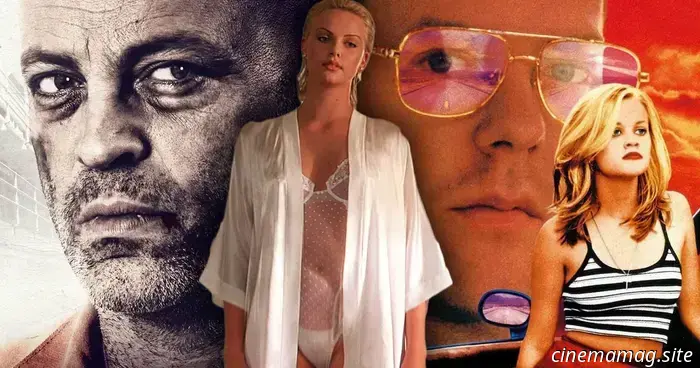
Fantastic Movies in the Style of Tarantino You Must Watch
Casey Chong features a collection of ‘Tarantino-esque’ films that are definitely worth exploring…
Whether you admire him or not, it’s undeniable that Quentin Tarantino’s films, especially his initial two works, Reservoir Dogs and Pulp Fiction, have left a significant mark on many filmmakers aspiring to replicate his distinct style. His signature elements, from non-linear storytelling to exaggerated violence, memorable characters, and nods to pop culture, are frequently found in numerous films that embody the Tarantino-esque aesthetic. Here are ten standout examples…
Blood, Guts, Bullets and Octane (1998)
People often overlook that Joe Carnahan began with a low-budget indie project. His first feature-length film, Blood, Guts, Bullets and Octane, was produced for a mere $7,300, and he made it work remarkably well. Although the film might seem rough, Carnahan’s prowess behind the camera shines through as he takes on multiple roles, including writing, producing, editing, and starring as a used car salesman.
The plot is a riot, showcasing Carnahan's ability to maximize his limited budget. The influence of Tarantino is evident throughout, particularly in the pop-culture-laden dialogues reminiscent of Reservoir Dogs and Pulp Fiction. The film's opening sequence stands out as we witness two used car salesmen (Sid French played by Carnahan and Bob Melba played by Dan Leis) employing every trick in the book to persuade customers to purchase their cars. Carnahan also channels Oliver Stone's visual style with rapid editing, handheld camerawork, and intercut black-and-white sequences, all effectively balanced within a concise 90 minutes.
Grosse Pointe Blank (1997)
In Grosse Pointe Blank, hitman Martin Blank (John Cusack) exclaims “Popcorn!” leading to an unexpected and chaotic moment. Casting Cusack as a hitman in the '90s was a bold choice, but his effortlessly cool and charismatic performance makes it work. The film skillfully intertwines various comedic genres, from dark humor to crime, action, and a sprinkle of romance between Cusack’s Martin and his high school sweetheart, Debi, portrayed by Minnie Driver.
The snappy dialogue and George Armitage's adept handling of the film's dark yet lighthearted tones make for an engaging watch. It features a lively performance from Dan Aykroyd as Martin’s rival, and the action sequences evoke a stylish, kinetic flair reminiscent of John Woo, particularly during an exciting gunfight in a convenience store.
Go (1999)
Doug Liman began his career with comedies in the '90s, and his third film, Go, remains one of his most accomplished works. This fast-paced and clever crime comedy exhibits a Tarantino-inspired vibe by focusing on three intertwined perspectives: Ronna (Sarah Polley), who urgently needs cash to prevent eviction; her co-worker Simon (Desmond Askew), whose trip to Las Vegas ends in chaos; and two actors (Scott Wolf and Jay Mohr) posing as ecstasy buyers to aid a detective (William Fichtner) in catching a dealer.
The interwoven stories are well-paced, filled with sharp dialogue and intriguing characters navigating various predicaments. Liman injects youthful energy into the film, creating a whirlwind cinematic experience rife with genuine laughs and moments of violence from start to finish.
Freeway (1996)
Matthew Bright’s debut feature offers a twisted rendition of the classic Little Red Riding Hood tale through a contemporary lens. The first half establishes 14-year-old Vanessa Lutz (Reese Witherspoon, delivering an early standout performance) as she navigates her mother’s and stepfather’s arrest and escapes from her social worker. The story takes a darker turn when she accepts a ride from a seemingly kind stranger (Kiefer Sutherland).
What begins as a simple road narrative escalates into a much darker tale as Sutherland’s character turns out to be a wanted serial killer. He embodies the role of the big bad wolf with his surname, Wolverton, suggesting a deeper connotation. Interestingly, Vanessa, initially portrayed as naive, reveals herself to be no pushover once the situation shifts, evolving from a mere victim to a fearless anti-heroine.
2 Days in the Valley (1996)
Some may accuse 2 Days in the Valley of imitating Pulp Fiction without the non-linear structure, but writer-director John Herzfeld’s ensemble crime comedy possesses its own unique charm. The film explores multiple characters and their interconnected stories, beginning with a pair of hitmen (James Spader and Danny Aiello) with contrasting personalities: one being cold and sadistic, the other more accommodating.
A murder sets off a chain of events across the San Fernando Valley, involving Teri Hatcher’s agitated former Olympian grappling with the death of her ex-husband, a suicidal television director (Paul Mazursky), a duo of









Other articles
.jpg) Rest in peace, Julian McMahon (1968 - 2025).
It is with a heavy heart that we share the news this evening that actor Julian McMahon has died at the age of 56 following a struggle with cancer. Born in Sydney, Australia, in 1968 to future Australian Prime Minister Billy McMahon, the young McMahon began his acting career with parts in Australian soap operas.
Rest in peace, Julian McMahon (1968 - 2025).
It is with a heavy heart that we share the news this evening that actor Julian McMahon has died at the age of 56 following a struggle with cancer. Born in Sydney, Australia, in 1968 to future Australian Prime Minister Billy McMahon, the young McMahon began his acting career with parts in Australian soap operas.
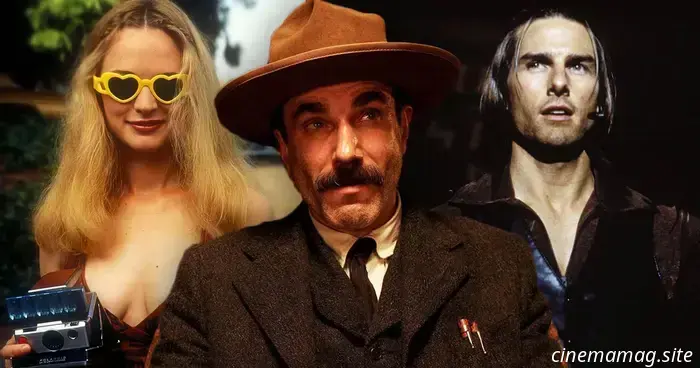 The Ascent of Paul Thomas Anderson: An Icon in the Making
Prior to One Battle After Another, Simon Thompson explores the ascent of filmmaker Paul Thomas Anderson. Paul Thomas Anderson is a director whose career appears to be a lesson in irony. Although he is an arthouse filmmaker, he enjoys insider status in Hollywood, seemingly capable of narrating his tales even in the most […]
The Ascent of Paul Thomas Anderson: An Icon in the Making
Prior to One Battle After Another, Simon Thompson explores the ascent of filmmaker Paul Thomas Anderson. Paul Thomas Anderson is a director whose career appears to be a lesson in irony. Although he is an arthouse filmmaker, he enjoys insider status in Hollywood, seemingly capable of narrating his tales even in the most […]
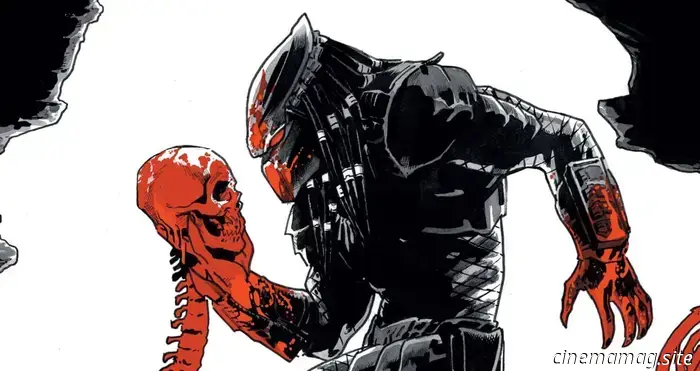 Predator: Black, White & Blood #1 - Comic Book Teaser
Marvel Comics is set to release its new anthology series, Predator: Black, White & Blood, next week. You can get a sneak preview of the first issue with the official preview below; have a look… Crafted by the creative mind of Joe Kelly (Amazing Spider-Man, Daredevil, Deadpool) alongside emerging artist Álvaro López (Captain Marvel, Beware the [...])
Predator: Black, White & Blood #1 - Comic Book Teaser
Marvel Comics is set to release its new anthology series, Predator: Black, White & Blood, next week. You can get a sneak preview of the first issue with the official preview below; have a look… Crafted by the creative mind of Joe Kelly (Amazing Spider-Man, Daredevil, Deadpool) alongside emerging artist Álvaro López (Captain Marvel, Beware the [...])
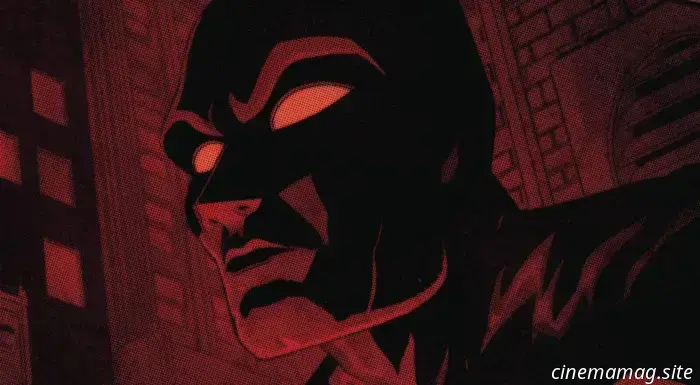 Batman: Dark Patterns #8 - Comic Book Teaser
Batman: Dark Patterns resumes this Wednesday with the launch of its eighth issue. Take a look below for an official preview from DC Comics... Batman's thorough probe into the Red Hood Gang murder in the Rookery sets him on a path to confront the unexpected perpetrators behind the latest enigma [...]
Batman: Dark Patterns #8 - Comic Book Teaser
Batman: Dark Patterns resumes this Wednesday with the launch of its eighth issue. Take a look below for an official preview from DC Comics... Batman's thorough probe into the Red Hood Gang murder in the Rookery sets him on a path to confront the unexpected perpetrators behind the latest enigma [...]
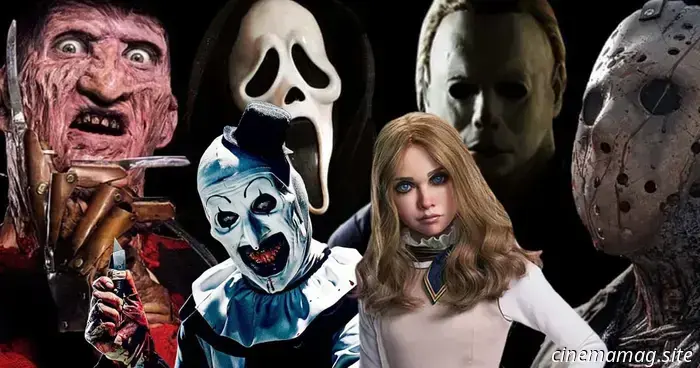 What became of the horror icon?
Where Have All the Boogeymen Disappeared To? The Ascendancy and Decline of the Horror Icon… There was an era when Freddy Krueger eclipsed Batman in the Halloween section. Jason Voorhees relaxed easily on the couches of talk shows. Chucky was more than merely a murderous doll; he was a dynamic merchandise powerhouse. These figures were not only antagonists, they [...]
What became of the horror icon?
Where Have All the Boogeymen Disappeared To? The Ascendancy and Decline of the Horror Icon… There was an era when Freddy Krueger eclipsed Batman in the Halloween section. Jason Voorhees relaxed easily on the couches of talk shows. Chucky was more than merely a murderous doll; he was a dynamic merchandise powerhouse. These figures were not only antagonists, they [...]
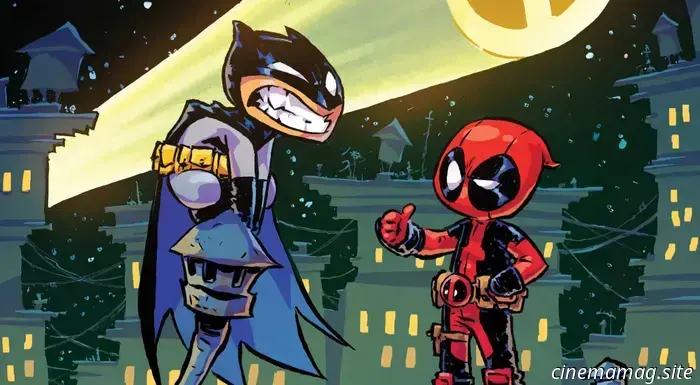 Marvel introduces new variant covers for the Deadpool/Batman #1 crossover.
In May, it was revealed that the iconic comic book publishers Marvel and DC are collaborating for the first time in years with the release of Marvel's Deadpool/Batman #1 and DC's Batman/Deadpool #1. These are two one-shot comics that feature the Merc with the Mouth and the Dark Knight, along with additional stories showcasing a variety of other groundbreaking team-ups. As […]
Marvel introduces new variant covers for the Deadpool/Batman #1 crossover.
In May, it was revealed that the iconic comic book publishers Marvel and DC are collaborating for the first time in years with the release of Marvel's Deadpool/Batman #1 and DC's Batman/Deadpool #1. These are two one-shot comics that feature the Merc with the Mouth and the Dark Knight, along with additional stories showcasing a variety of other groundbreaking team-ups. As […]
Fantastic Movies in the Style of Tarantino You Must Watch
Casey Chong offers a curated list of films that embody a 'Tarantino-esque' style, which are definitely worth exploring. Whether you admire or dislike him, it's undeniable that Quentin Tarantino's films, especially his initial two works, Reservoir Dogs and Pulp Fiction, have left a significant mark on numerous directors attempting to imitate his distinctive approach. His hallmarks range from characteristic non-linear narratives to exaggerated […]
